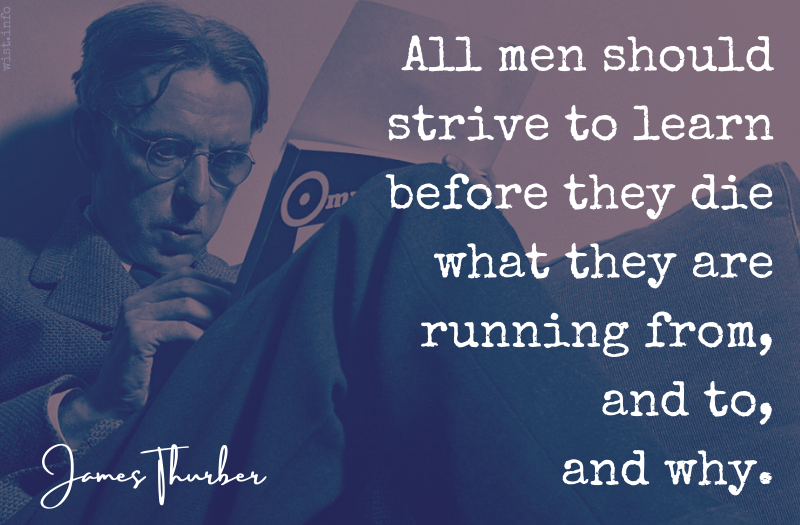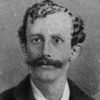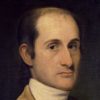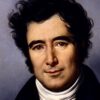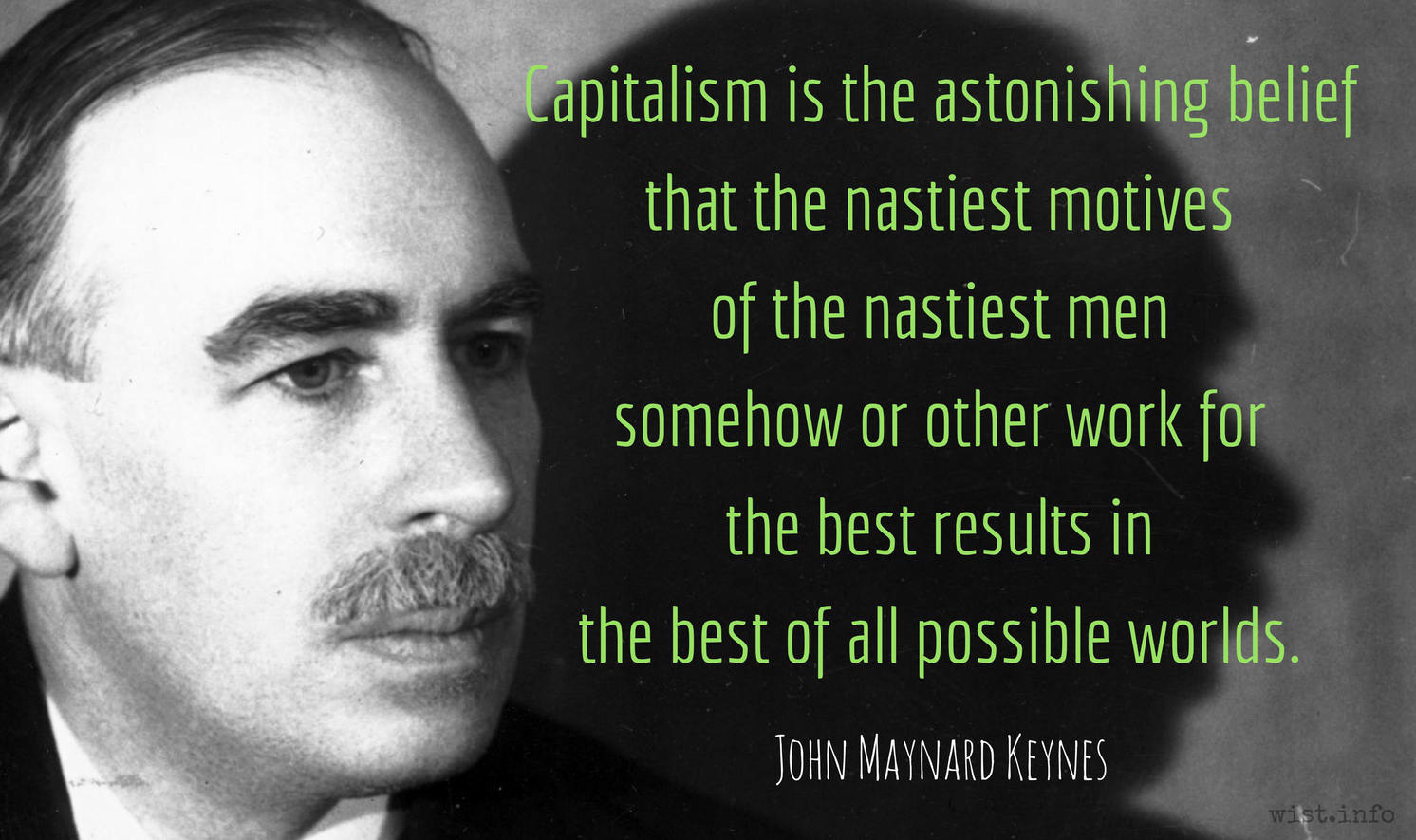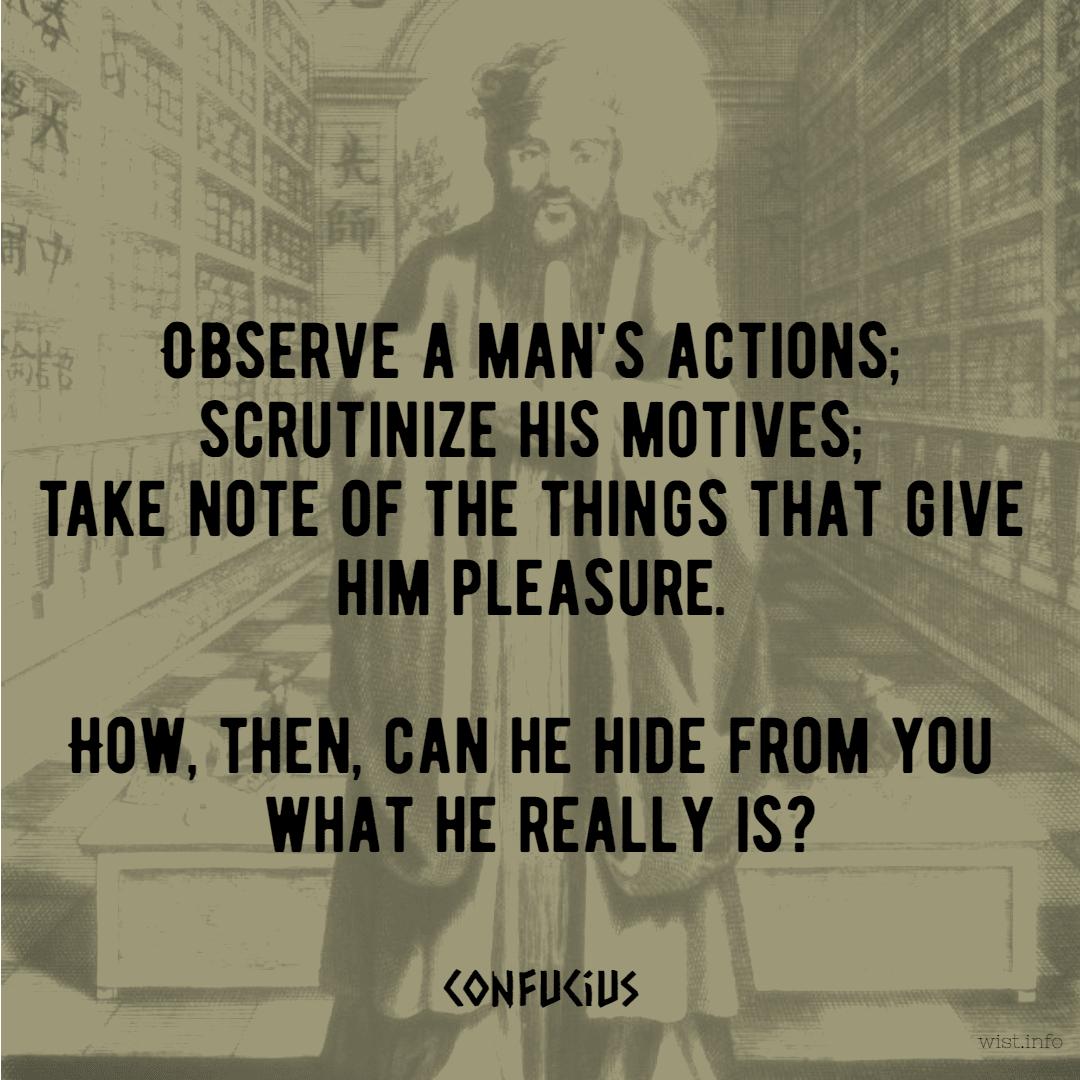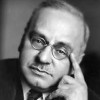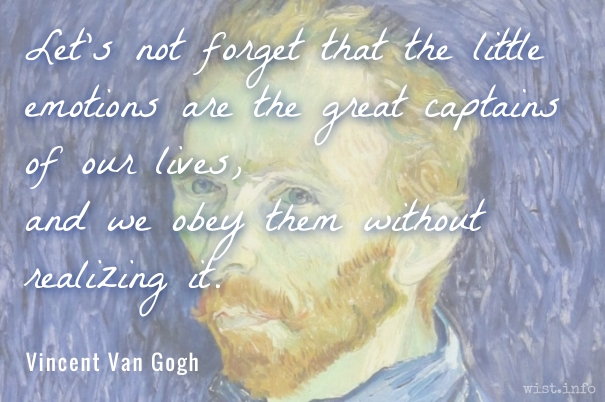If you look at someone and see no reasonable probability you’ll ever have a positive or instructive interaction with them, block now and move on.
Ken White (b. c. 1969) American constitutional and criminal attorney, prosecutor, blogger
Twitter (2022-09-13)
(Source)
Commonly known as "The Popehat Rule" (after White's Twitter account handle). An earlier version reads:
Block early, block often, block whenever you feel "I think I would enjoy not knowing this person.
[Twitter (2022-06-23)]
This should not be confused with Popehat's Rule of Goats or Law of Goats, e.g.:
He who fucks goats, either as part of a performance or to troll those he deems has overly delicate sensibilities, is simply a goatfucker.
[Urban Dictionary, "Popehat's Law of Goats"]
If you fuck goats because it upsets people you hate, you're still a goatfucker. Nobody cares that you're an insincere goatfucker.
[Twitter (2017-02-19)]
The Rule of Goats: even if you say you're only fucking goats ironically, you're still a goatfucker.
[Twitter (2017-04-30)]
If you kiss a goat, even if you say you’re doing it ironically, you’re still a goat-kisser.
["Is Alex Jones an extreme conspiracy theorist or a giant troll?" Los Angeles Times (2017-04-11) (Paraphrased "for this family newspaper")]
Quotations about:
motivation
Note not all quotations have been tagged, so Search may find additional quotes on this topic.
And it is not always because of valour or chastity that men are valiant or women chaste.
[Et ce n’est pas toujours par valeur et par chasteté que les hommes sont vaillants et que les femmes sont chastes.]François VI, duc de La Rochefoucauld (1613-1680) French epigrammatist, memoirist, noble
Réflexions ou sentences et maximes morales [Reflections; or Sentences and Moral Maxims], ¶1 (1665-1678) [tr. Tancock (1959)]
(Source)
Introduced in the 4th ed. (1665).
(Source (French)). Alternate translations:
It may be further affirmed, that Valour in Men, and Chastity in Women, two qualifications which make so much noise in the World, are the products of Vanity and Shame, and principally of their particular Temperaments.
[tr. Davies (1669), ¶94]
And we are much mistaken, if we think that Men are always stout from a principle of Valour, or Women chast from a principle of Modesty.
[tr. Stanhope (1694)]
It is not always from the principles of valour and chastity that men are valiant, and that women are chaste.
[pub. Donaldson (1783), ¶446]
It is not always from valor and from chastity that men are valiant, and that women are chaste.
[ed. Gowens (1851), ¶2]
It is not always from valour or from chastity that men are brave, and women chaste.
[tr. Bund/Friswell (1871)]
Men are not always brave because courageous, nor women chaste because virtuous.
[tr. Heard (1917)]
So it is not always courage that makes the hero, nor modesty the chaste woman.
[tr. Stevens (1939)]
It is not always valor which makes men valiant, nor chastity that renders women chaste.
[tr. FitzGibbon (1957)]
And it is not always through valor and chastity that men are valiant and women chaste.
[tr. Kronenberger (1959)]
It is not always because of bravery or chastity that men are brave, and women chaste.
[tr. Whichello (2016)]
I certainly had not the smallest reason to fear that the execution of this murderer of Roman citizens would cause me to be blamed by posterity. And indeed, even if this were a serious danger, I have always been convinced that unpopularity earned by honourable actions is not unpopularity at all, but renown.
[Certe verendum mihi non erat, ne quid hoc parricida civium interfecto invidiae mihi in posteritatem redundaret. Quodsi ea mihi maxime inpenderet tamen hoc animo fui semper, ut invidiam virtute partam gloriam, non invidiam putarem.]Marcus Tullius Cicero (106-43 BC) Roman orator, statesman, philosopher
Orationes in Catilinam [Catilinarian Orations], No. 1, § 12, cl. 29 (1.12.29) (63-11-08 BC) [tr. Grant (1960)]
(Source)
(Source (Latin)). Alternate translations:
Truly I have no reason to fear, least this Murderer of the Citizens being slain, any envy should rise against me for the future. But if never so much did hang over me, yet I was alwayes of this Judgment, to think Envy gotten by Vertue to be no Envy but Glory.
[tr. Wase (1671)]
I could have no reason to fear; that for the execution of a traitor and a parricide I should stand condemned by the voice of posterity. But let me add, were the severest censure to be the certain consequence, it has ever been my settled opinion, that reproach, when earned by virtue, is not reproach, but the truest glory.
[tr. Sydney (1795)]
Surely I had no cause to fear lest for slaying this parricidal murderer of the citizens any unpopularity should accrue to me with posterity. And if it did threaten me to ever so great a degree, yet I have always been of the disposition to think unpopularity earned by virtue and glory, not unpopularity.
[tr. Yonge (1856)]
Surely it was not to be dreaded by me, lest, if this parricide of the citizens were slain, any odium might redound for me to posterity. But if that impended over myself in particular, yet I have always been of this opinion, that I should consider the odium acquired by merit as glory and not as odium.
[tr. Mongan (1879)]
Certainly it was not to be feared to (by) me, lest any (thing) of unpopularity might redound to me unto posterity, this parricide of citizens being slain. But if it might impend (threaten) to me mostly (very much), yet I have been always with this mind, that I might think envy produced by virtue, glory, not envy.
[tr. Underwood (1885)]
Certainly it was not to be feared by me, lest any ill-will should redound to [affect] me for posterity, this parricide of citizens having been slain. But if this should threaten me very much, yet I have been always with [of] this mind, that I should think ill will produced by virtue, glory, not ill will.
[tr. Dewey (1916)]
Certainly I did not have to fear, lest with this parricide of citizens having been killed, anything of unpopularity might run over in posterity. And yet, if these were to threaten me especially, however, I have always been in this mind, so that I thought that unpopularity obtained by virtue is an honour, not unpopularity at all.
[IB Notes]
I have always been of the opinion that infamy earned by doing what is right is not infamy at all, but glory.
[E.g.]
For it’s the will
And not the gift that makes the giver.[Denn der Wille
und nicht die Gabe macht den Geber.]Gotthold Lessing (1729-1781) German playwright, philosopher, dramaturg, writer
Nathan the Wise [Nathan der Weise], Act 1, sc. 5 [Lay Brother/Friar] (1779) [tr. Morgan (1955)]
(Source)
(Source (German)). Alternate translations:
The will, and not the deed, makes up the giver.
[tr. Taylor (1790)]
'Tis
The will, and not the boon, that makes the giver.
[tr. Reich (1860)]
For the will it is
That makes the giver -- not the gift.
[tr. Jacks (1867)]
For the will and not the gift makes the giver.
[Source (1873)]
The will and not the deed perfects the giver.
[tr. Boylan (1878)]
For 'tis the will, and not the gift,
That makes the giver.
[tr. Corbett (1883)]
The will and not the gift
Doth constitute the giver.
[tr. Maxwell (1917)]
Because the intention and not the gift make the giver.
[tr. Reinhardt (1950)]
It's not the gift that makes the giver, no, but rather his good will.
[tr. Ade (1972)]
Modern wars are seldom fought without hatred between nations; this serves as a more or less substitute for the hatred between individuals. Even when there is no natural hatred and no animosity to start with, the fighting itself will stir up hostile feelings: violence committed on superior orders will stir up the desire for revenge and retaliation against the perpetrator rather than against the powers that ordered the action. It is only human (or animal, if you like), but it is a fact.
[Der Nationalhaß, an dem es auch bei unseren Kriegen selten fehlt, vertritt bei dem einzelnen gegen den einzelnen mehr oder weniger stark die individuelle Feindschaft. Wo aber auch dieser fehlt und anfangs keine Erbitterung war, entzündet sich das feindselige Gefühl an dem Kampfe selbst, denn eine Gewaltsamkeit, die jemand auf höhere Weisung an uns verübt, wird uns zur Vergeltung und Rache gegen ihn entflammen, früher noch, ehe wir es gegen die höhere Gewalt sein werden, die ihm gebietet, so zu handeln. Dies ist menschlich oder auch tierisch, wenn man will, aber es ist so.]
Karl von Clausewitz (1780-1831) Prussian soldier, historian, military theorist
On War [Vom Kriege], Book 2, ch. 2 “On the Theory of War [Über die Theorie des Krieges],” § 17 (2.2.17) (1832) [tr. Howard & Paret (1976)]
(Source)
(Source (German)). Alternate translations:
National hatred, which is seldom wanting in our wars, is a substitute for personal hostility in the breast of individual opposed to individual. But where this also is wanting, and at first no animosity of feeling subsisted, a hostile feeling is kindled by the combat itself; for an act of violence which any one commits upon us by order of his superior, will excite in us a desire to retaliate and be revenged on him, sooner than on the superior power at whose command the act was done. This is human, or animal if we will; still it is so.
[tr. Graham (1873)]
National hatred, which is seldom lacking in our wars, becomes a more or less powerful substitute for personal hostility of individual against individual. But where this also is wanting, and, at first, no animosity existed, a hostile feeling is kindled by the combat itself. An act of violence which anyone commits upon us by order of his superior will excite in us the desire to retaliate and be revenged on him sooner than on the superior power at whose command the act was done. This is human -- animal, if you will -- but it is a fact.
[tr. Jolles (1943)]
I have yet to see a serious act of violence that was not provoked by the experience of feeling shamed or humiliated, disrespected and ridiculed.
James Gilligan (b. c. 1936) American psychiatrist and author
Interview in Jon Ronson, So You’ve Been Publicly Shamed, ch. 13 (2015)
(Source)
Pure Valour, if there were any such thing, would consist in the doing of that without witnesses, which it were able to do, if all the world were to be spectators thereof.
[La pure valeur (s’il y en avait) serait de faire sans témoins ce qu’on est capable de faire devant le monde.]
François VI, duc de La Rochefoucauld (1613-1680) French epigrammatist, memoirist, noble
Réflexions ou sentences et maximes morales [Reflections; or Sentences and Moral Maxims], ¶216 (1665-1678) [tr. Davies (1669), ¶97]
(Source)
(Source (French, 1665 ed., ¶229)). In the final edition (1678, ¶216), the original French had been modified to:
La parfaite valeur est de faire sans témoins ce qu’on seroit capable de faire devant tout le monde.
Alternate translations:
True Valour would do all that, when alone, that it could do, if all the World were by.
[tr. Stanhope (1694), ¶217]
Perfect valour consists in doing without witnesses all we should be capable of doing before the whole world.
[pub. Donaldson (1783), ¶431]
Perfect valour consists in doing, without witness, all that we should be capable of doing before the whole world.
[ed. Carville (1835), ¶367]
Perfect valor is to do unwitnessed what we should be capable of doing before all the world.
[ed. Gowens (1851), ¶225]
Perfect valour is to do without witnesses what one would do before all the world.
[tr. Bund/Friswell (1871)]
Perfect valor accomplishes without witnesses what anyone could do before the eyes of the world.
[tr. Heard (1917), ¶221]
Perfect courage consists in doing unobserved what what we could do in the eyes of the world.
[tr. Stevens (1939)]
Perfect valour is to behave, without witnesses, as one would act were all the world watching.
[tr. FitzGibbon (1957)]
Perfect courage means doing unwitnessed what we would be capable of with the world looking on.
[tr. Kronenberger (1959)]
Perfect valour consists in doing without witnesses what one would be capable of doing before the world at large.
[tr Tancock (1959)]
Perfect courage is to do without witnesses what one would do before all the world.
[tr. Whichello (2016)]
Perfect courage is to do without witnesses what one would be capable of doing with the world looking on.
[Source]
A blueprint for disaster in any society is when the elite are capable of insulating themselves.
Jared Diamond (b. 1937) American geographer, historian, ornithologist, author
“Choosing Success,” interview by Catherine Sepp, National Review (30 Jun 2005)
(Source)
Before you’ll change, something important must be at risk.
Richard Bach (b. 1936) American writer
Messiah’s Handbook: Reminders for the Advanced Soul (2004)
(Source)
I now return the Sermon you were so kind as to enclose me, having perused it with attention. The reprinting it by me, as you have proposed, would very readily be ascribed to hypocritical affectation, by those who, when they cannot blame our acts, have recourse to the expedient of imputing them to bad motives. This is a resource which can never fail them, because there is no act, however virtuous, for which ingenuity may not find some bad motive.
Thomas Jefferson (1743-1826) American political philosopher, polymath, statesman, US President (1801-09)
Letter (1903-04-19) to Edward Dowse
(Source)
Acts and their consequences are the things by which our fellows judge us. Anything else, and all that you get is a cheap feeling of moral superiority by thinking how you would have done something nicer if it had been you. So as for the rest, leave it to heaven. I’m not qualified.
It occurs to me that there is a proper balance between not asking enough of oneself and asking or expecting too much. It may be that I set my sights too high and so repeatedly end a day in depression. Not easy to find the balance, for it one does not have wild dreams of achievement, there is no spur even to get the dishes washed. One must think like a hero to behave like a merely decent human being.
May Sarton (1912-1995) Belgian-American poet, novelist, memoirist [pen name of Eleanore Marie Sarton]
Journal of a Solitude, “February 4th” (1973)
(Source)
We must never forget that human motives are generally far more complicated than we are apt to suppose, and that we can very rarely accurately describe the motives of another.
Fyodor Dostoyevsky (1821-1881) Russian novelist
The Idiot, Part 3, ch. 3 (1869) [tr. Martin (1915)]
(Source)
Alternate translation: "Don't let us forget that the motives of human actions are usually infinitely more complex and varied than we are apt to explain them afterwards, and can rarely be defined with certainty." [tr. Magarshack (1955)]
I’m not interested so much in how people survive as in how they avoid humiliation. Chekhov says we must never humiliate one another, and I think avoiding humiliation is the core of tragedy and comedy and probably of our lives.
John Guare (b. 1938) American playwright and screenwriter
The House of Blue Leaves, Introduction (1971)
(Source)
Much misconstruction of character arises out of our habit of assigning a motive for every action — whereas a good many of our acts are performed without any motive.
Christian Nestell Bovee (1820-1904) American epigrammatist, writer, publisher
Intuitions and Summaries of Thought, Vol. 2 (1862)
(Source)
In my opinion, most of the great men of the past were only there for the beer — the wealth, prestige and grandeur that went with the power.
A. J. P. Taylor (1906-1990) British historian, journalist, broadcaster [Alan John Percivale Taylor]
“Fiction in History,” Times Literary Supplement (23 Mar 1973)
Reprinted in his Essays in English History (1976).
It is important to remember that events now long in the past were once in the future.
F. W. Maitland (1850-1906) English legal historian and jurist [Frederic William Maitland]
(Attributed)
A favorite saying of A. J. P. Taylor's which he used repeatedly in his writings, attributing it to Maitland. It is sometimes erroneously attributed to Taylor. Variant: "It is very had to remember that events now long in the past were once in the future"
Perhaps the hardest thing for humans to do is to imagine the world as it is imagined by others. We tend to confuse acting in accordance with the goals and values of the society in which we live with rationality; we tend to confuse intelligence with thinking in accordance with those goals and values. And, of course, we are always inclined to see events as predetermined — and we are almost always wrong.
Masha Gessen (b. 1967) Russian-American journalist, author, translator, activist
“The Fundamental Uncertainty of Mueller’s Russia Indictments,” The New Yorker (20 Feb 2018)
(Source)
Character is that which reveals moral purpose, showing what kind of things a man chooses or avoid.
[ἔστιν δὲ ἦθος μὲν τὸ τοιοῦτον ὃ δηλοῖ τὴν προαίρεσιν, ὁποία τις ἐν οἷς οὐκ ἔστι δῆλον ἢ προαιρεῖται ἢ φεύγει διόπερ οὐκ ἔχουσιν ἦθος τῶν λόγων ἐν οἷς μηδ᾽ ὅλως ἔστιν ὅ τι προαιρεῖται ἢ φεύγει ὁ λέγων.]
Aristotle (384-322 BC) Greek philosopher
Poetics [Περὶ ποιητικῆς, De Poetica], ch. 6, sec. 17 / 1450b.9 (c. 335 BC) [tr. Butcher (1895)]
(Source)
Original Greek. The key word êthos [ἦθος] is generally given here as "character." Alternate translations:
- "Character in a play is that which reveals the moral purpose of the agents, i.e. the sort of thing they seek or avoid, where that is not obvious." [tr. Bywater (1909)]
- "Psychology in the sense of "an index to the quality of the purpose" has for its sphere places where the ulterior purposes of an immediate resolve (positive or negative) is naturally obscure." [tr. Margoliouth (1911)]
- "Character is that which reveals choice, shows what sort of thing a man chooses or avoids in circumstances where the choice is not obvious." [tr. Fyfe (1932)]
- "Character is that which reveals decision, of whatever sort." [tr. Janko (1987), sec. 3.1.3]
- "Moral character is what reveals the nature of people's fundamental options." [tr. Kenny (2013)]
People in other cultures are generally thought to commit terrible acts for calculated reasons, underscored by some perverse morality that can be readily discounted, so that only the consequences of their actions should be judged, whereas for one’s own group motivation is, and what ought to, mostly count.
Scott Atran (b. 1952) American-French cultural anthropologist
“Good Guys Kill Better,” Huffington Post (17 Mar 2012)
(Source)
We must not suppose that, because a man is a rational animal, he will, therefore, always act rationally; or, because he has such or such a predominant passion, that he will act invariably and consequentially in the pursuit of it. No, we are complicated machines; and though we have one main spring that gives motion to the whole, we have an infinity of little wheels, which, in their turns, retard, precipitate, and sometimes stop that motion.
Lord Chesterfield (1694-1773) English statesman, wit [Philip Dormer Stanhope]
Letter to his son, #209 (19 Dec 1749)
(Source)
CREON: Prophecies? All your tribe wants is to make money.
TIRESIAS: And what about tyrants? Filthy lucre is all you want![Κρέων: τὸ μαντικὸν γὰρ πᾶν φιλάργυρον γένος.
Τειρεσίας: τὸ δ᾽ ἐκ τυράννων αἰσχροκέρδειαν φιλεῖ.]Sophocles (496-406 BC) Greek tragic playwright
Antigone, l. 1055ff (441 BC) [tr. Woodruff (2001)]
(Source)
Argument between Creon, the king, and Teiresias, his seer. Original Greek. Alternate translations:
KREON: The race of seers is wholly given to pelf.
TEIRESIAS: The tyrant-race is given to filthy lucre.
[tr. Donaldson (1848)]
CREON: Prophets are all a money-getting tribe.
TEIRESIAS: And kings are all a lucre-loving race.
[tr. Campbell (1873)]
CREON: Desire of money is the prophet's plague.
TIRESIAS: And ill-sought lucre is the curse of kings.
[tr. Storr (1859)]
CREON: Yes, for the prophet-clan was ever fond of money.
TEIRESIAS: And the race sprung from tyrants loves shameful gain.
[tr. Jebb (1891)]
CREON: Your prophetic race are lovers all of gold.
TIRESIAS: Tyrants are so, howe'er illgotten.
[tr. Werner (1892)]
CREON: Well, the prophet-tribe was ever fond of money.
TEIRESIAS: And the race bred of tyrants loves base gain.
[tr. Jebb (1917)]
CREON: The generation of prophets has always loved gold.
TEIRESIAS: The generation of kings has always loved brass.
[tr. Fitts/Fitzgerald (1939)]
CREON: I say all prophets seek their own advantage.
TEIRESIAS: All kings, I say, seek gain unrighteously.
[tr. Watling (1947)]
CREON: Well, the whole crew of seers are money-mad.
TEIRESIAS: And the whole tribe of tyrants grab at gain.
[tr. Wyckoff (1954)]
CREON: Prophets have always been too fond of gold.
TEIRESIAS: And tyrants, of the shameful use of power.
[tr. Kitto (1962)]
CREON: You and the whole breed of seers are mad for money!
TIRESIAS: And the whole race of tyrants lusts for filthy gain.
[tr. Fagles (1982), l. 1171ff]
CREON: Yes, for the whole family of prophets is philos to silver.
TIRESIAS: And the family of absolute rulers holds disgraceful profits as philoi.
[tr. Tyrell/Bennett (2002)]
CREON: The whole race of prophets loves money.
TEIRESIAS: And the kings love their shameful profits.
[tr. Theodoridis (2004)]
CREON: The tribe of prophets --
all of them -- are fond of money.
TEIRESIAS: And kings?
Their tribe loves to benefit dishonestly.
[tr. Johnston (2005), l. 1180ff]
TEIRESIAS: The race of tyrants loves shameful profit.
[tr. @senstantiq (2018)]
Virtue consists, not in avoiding wrong-doing, but in having no wish thereto.
[Ἀγαθὸν οὐ τὸ μὴ ἀδικεῖν, ἀλλὰ τὸ μηδὲ ἐθέλειν.]
Democritus (c. 460 BC - c. 370 BC) Greek philosopher
Frag. 62 (Diels) [tr. Freeman (1948)]
(Source)
Original Greek. Diels cites this as "62. ( 38 N.) DEMOKRATES. 27" ; collected in Joannes Stobaeus (Stobaios) Anthologium III, 9, 29. Bakewell lists this under "The Golden Sayings of Democritus." Freeman notes this as one of the Gnômae, from a collection called "Maxims of Democratês," but because Stobaeus quotes many of these as "Maxims of Democritus," they are generally attributed to the latter.
Alternate translations:
- "To be good is not only not to do an injury, but not so much as to desire to do one." [tr. Clarke (1750), Democrates, "Ethica."]
- "Good means not [merely] not to do wrong, but rather not to desire to do wrong.: [tr. Bakewell (1907)]
- "To be good is not to refrain from wrongdoing but not even to want to commit it." [tr. Barnes (1987)]
- "It is not good to not commit injustice, but rather to not desire to." [tr. @sententiq (2018), frag. 61]
- "Virtue consists not in avoiding wrongdoing, but in having no desire for it." [Source]
It is too true, however disgraceful it may be to human nature, that nations in general will make war whenever they have a prospect of getting anything by it; nay, absolute monarchs will often make war when their nations are to get nothing by it, but for the purposes and objects merely personal, such as thirst for military glory, revenge for personal affronts, ambition, or private compacts to aggrandize or support their particular families or partisans. These and a variety of other motives, which affect only the mind of the sovereign, often lead him to engage in wars not sanctified by justice or the voice and interests of his people.
John Jay (1745-1829) American statesman, diplomat, abolitionist, politician, Chief Justice (1789-1795)
The Federalist #4 (7 Nov 1787)
(Source)
To have a reason to get up in the morning, it is necessary to possess a guiding principle. A belief of some kind. A bumper sticker, if you will.
Judith Guest (b. 1936) American novelist and screenwriter.
Ordinary People, ch. 1, opening lines (1980)
(Source)
Every social war is a battle between the very few on both sides who care and who fire their shots across a crowd of spectators.
Murray Kempton (1917-1997) American journalist.
Part of Our Time: Some Ruins & Monuments of the Thirties (1955)
(Source)
I was often humiliated to see men disputing for a piece of bread, just as animals might have done. My feelings on this subject have very much altered since I have been personally exposed to the tortures of hunger. I have discovered, in fact, that a man, whatever may have been his origin, his education, and his habits, is governed, under certain circumstances, much more by his stomach than by his intelligence and his heart.
François Arago (1786-1853) French Catalan mathematician, physicist, astronomer, politician
Biographies of Distinguished Scientific Men, “The History of My Youth” (1859) [tr. Smyth, Powell, Grant]
(Source)
If a political party does not have its foundation in the determination to advance a cause that is right and that is moral, then it is not a political party; it is merely a conspiracy to seize power.
Dwight David Eisenhower (1890-1969) American general, US President (1953-61)
Speech, Fourth Annual Republican Women’s National Conference, Washington, DC (6 Mar 1956)
(Source)
We do what we must, and call it by the best names we can, and would fain have the praise of having intended the result which ensues.
Ralph Waldo Emerson (1803-1882) American essayist, lecturer, poet
“Experience,” Essays: Second Series (1844)
(Source)
You can buy a man’s time; you can buy a man’s physical presence at a given place; you can even buy a measured number of skilled muscular motions per hour or day. But you cannot buy enthusiasm; you cannot buy initiative; you cannot buy loyalty; you cannot buy the devotion of hearts, minds and souls. You have to earn those things.
Clarence Francis (1888-1985) American business executive, food industry consultant
“The Causes of Industrial Peace,” speech, National Association of Manufacturers (4 Dec 1947)
(Source)
Sometimes titled "Philosophy of Management".
After all, vanity is as much a virtue as a vice. It is easy to recite copy-book maxims against its sinfulness, but it is a passion that can move us to good as well as to evil. Ambition is only vanity ennobled. We want to win praise and admiration — or Fame as we prefer to name it — and so we write great books, and paint grand pictures, and sing sweet songs; and toil with willing hands in study, loom, and laboratory.
Jerome K. Jerome (1859-1927) English writer, humorist [Jerome Klapka Jerome]
“On Vanity and Vanities,” The Idle Thoughts of an Idle Fellow (1889)
(Source)
The last temptation is the greatest treason:
To do the right deed for the wrong reason.T. S. Eliot (1888-1965) American-British poet, critic, playwright [Thomas Stearns Eliot]
Murder in the Cathedral, Act 1 [Thomas] (1935)
(Source)
[Capitalism is] the astonishing belief that the nastiest motives of the nastiest men somehow or other work for the best results in the best of all possible worlds.
John Maynard Keynes (1883-1946) English economist
(Attributed)
Attributed by Sir George Schuster, Christianity and Human Relations in Industry (1951). Frequently quoted, but no direct citation found. More information here.
Variations:
- "... the extraordinary belief that the nastiest of men for the nastiest of motives will somehow work for the benefit of all."
- "... the astounding belief that the most wickedest of men will do the most wickedest of things for the greatest good of everyone."
- "The great merit of the capitalist system, it has been said, is that it succeeds in using the nastiest motives of nasty people for the ultimate benefit of society." (written by E. A. G. Robinson, Monopoly (1941). (Robinson was a colleague of Keynes.)
Observe a man’s actions; scrutinize his motives; take note of the things that give him pleasure. How, then, can he hide from you what he really is?
[視其所以。觀其所由。察其所安。人焉廋哉、人焉廋哉]
Confucius (c. 551- c. 479 BC) Chinese philosopher, sage, politician [孔夫子 (Kǒng Fūzǐ, K'ung Fu-tzu, K'ung Fu Tse), 孔子 (Kǒngzǐ, Chungni), 孔丘 (Kǒng Qiū, K'ung Ch'iu)]
The Analects [論語, 论语, Lúnyǔ], Book 2, verse 10 (2.10) (6th C. BC – AD 3rd C.) [tr. Giles (1907)]
(Source)
(Source (Chinese)). Alternate translations:
See what a man does. Mark his motives. Examine in what things he rests. How can a man conceal his character? How can a man conceal his character?
[tr. Legge (1861)]
If you observe what things people (usually) take in hand, watch their motives, and note particularly what it is that gives them satisfaction, shall they be able to conceal from you what they are? Conceal themselves, indeed!
[tr. Jennings (1895)]
You look at how a man acts; consider his motives; find out his tastes. How can a man hide himself; how can he hide himself from you?
[tr. Ku Hung-Ming (1898)]
Observe what he does; look into his motives; find out in what he rests. Can a man hide himself! Can a man hide himself!
[tr. Soothill (1910)]
Watch a man’s means, what and how. See what starts him. See what he is at ease in. How can a man conceal his real bent?
[tr. Pound (1933)]
Look closely into his aims, observe the means by which e pursues them, discover what brings him content -- and can the man's real worth remain hidden from you, can it remain hidden from you?
[tr. Waley (1938)]
Look at the means which a man employs; consider his motives; observe his pleasures. A man simply cannot conceal himself!
[tr. Ware (1950)]
Observe a man's actions; scrutinize his motives; and study what makes him content. How can a man conceal himself?
[tr. Chai (1965)]
Look at the means a man employs, observe the path he takes and examine where he feels at home. In what way is a man's true character hidden from view? In what way is man's true character hidden from view?
[tr. Lau (1979)]
See how he operates, observe what path he follows, examine what his is satisfied with, and how can a man remain inscrutable, how can a man remain inscrutable!
[tr. Dawson (1993)]
Find out why a man acts, observe how he acts, and examine where he finds his peace. Is there anything he could still hide?
[tr. Leys (1997)]
See what a man does; contemplate the path he has traversed; examine what he is at ease with. How, then, can he conceal himself? How, then, can he conceal himself?
[tr. Huang (1997)]
See what a man does; contemplate the path he has traversed; examine what he is at ease with. How, then, can he conceal himself?
[tr. Huang (1997)]
Watching one's action, examining one's experience, and observing one's favorite. What could one hide? What could one hide?
[tr. Cai/Yu (1998)]
Watch their actions, observe their motives, examine wherein they dwell content; won't you know what kind of person they are? Won't you know what kind of person they are?
[tr. Ames/Rosemont (1998)]
See what he bases himself on, observe what he follows, find out what he si comfortable with. Where can the man hide? Where can the man hide?
[tr. Brooks/Brooks (1998)]
If you look at their intentions, examine their motives, and scrutinize what brings them contentment -- how can people hide who they are? How can they hide who they really are?
[tr. Hinton (1998)]
Look at the means a man employs, observe the basis from which he acts, and discover where it is that he feels at ease. Where can he hide? Where can he hide?
[tr. Slingerland (2003)]
Watch what he does, observe the path he follows, examine where he comes to rest -- can any person then remain a mystery? Can any person remain a mystery?
[tr. Watson (2007)]
Observe [shi] what a man does. Look into [guan] what he has done [you]. Consider [cha] where he feels at home. How then can he hide his character?
[tr. Chin (2014)]
You observe the motivation of a person's behavior and words, the approach and directions he follows, and his mental and emotional conditions. What can he hide? What can he hide?
[tr. Li (2020)]
To be a human being means to possess a feeling of inferiority which constantly presses towards its own conquest. … The greater the feeling of inferiority that has been experienced, the more powerful is the urge for conquest and the more violent the emotional agitation.
If we are devoted to the cause of humanity, we shall soon be crushed and broken-hearted, for we shall often meet with more ingratitude from men than we would from a dog; but if our motive is love to God, no ingratitude can hinder us from serving our fellow men.
In giving of thy alms, inquire not so much into the person, as his necessity. God looks not so much upon the merits of him that requires, as into the manner of him that relieves; if the man deserve not, thou hast given it to humanity.
Let’s not forget that the little emotions are the great captains of our lives, and we obey them without realizing it.
Hire and promote first on the basis of integrity; second, motivation; third, capacity; fourth, understanding; fifth, knowledge; and last and least, experience. Without integrity, motivation is dangerous; without motivation, capacity is impotent; without capacity, understanding is limited; without understanding, knowledge is meaningless; without knowledge, experience is blind. Experience is easy to provide and quickly put to good use by people with all the other qualities.
Dee W. Hock (b. 1929) American businessman
In M. Mitchell Waldrop, “Dee Hock on Management,” Fast Company (Oct/Nov 1996)
(Source)
My test of the real worth of a man as a preacher is when his congregation go away, saying, not, “What a beautiful sermon!” but “I will do something.”
François de Sales (1567-1622) French bishop, saint, writer [a.k.a. Francis de Sales, b. François de Boisy]
(Attributed)
(Source)
Talking of the danger of being mortified by rejection, when making approaches to the acquaintance of the great, I observed, “I am, however, generally for trying, ‘Nothing venture, nothing have.'” JOHNSON. “Very true, sir; but I have always been more afraid of failing, than hopeful of success.”
The only difference between me and most people is that I’m perfectly aware that all my important decisions are made for me by my subconscious. My frontal lobes are just kidding themselves that they decide anything at all. All they do is think up reasons for the decisions that are already made.
Necessity can make a doubtful action innocent, but it cannot make it commendable.
[La nécessité peut rendre innocente une action douteuse ; mais elle ne saurait la rendre louable.]
Joseph Joubert (1754-1824) French moralist, philosopher, essayist, poet
Pensées [Thoughts], ch. 9 “De la Sagesse, de la Vertu, etc. [On Wisdom and Virtue],” ¶ 20 (1850 ed.) [tr. Auster (1983), 1808]
(Source)
(Source (French)). Alternate translations:
Necessity may render a doubtful act innocent, but it cannot make it praiseworthy.
[tr. Attwell (1896), ¶ 133]
Necessity may render a doubtful action innocent; but it cannot make it praiseworthy.
[tr. Lyttelton (1899), ch. 8, ¶ 16]
Repentanse should be the effekt ov love — not fear.
[Repentance should be the effect of love — not fear.]
Josh Billings (1818-1885) American humorist, aphorist [pseud. of Henry Wheeler Shaw]
Everybody’s Friend, Or; Josh Billing’s Encyclopedia and Proverbial Philosophy of Wit and Humor, ch. 155 “Affurisms: Ink Lings” (1874)
(Source)
All nationalists have the power of not seeing resemblances between similar sets of facts. A British Tory will defend self-determination in Europe and oppose it in India with no feeling of inconsistency. Actions are held to be good or bad, not on their own merits, but according to who does them, and there is almost no kind of outrage — torture, the use of hostages, forced labour, mass deportations, imprisonment without trial, forgery, assassination, the bombing of civilians — which does not change its moral colour when it is committed by ‘our’ side.
George Orwell (1903-1950) English writer [pseud. of Eric Arthur Blair]
“Notes on Nationalism” (May 1945)
(Source)












